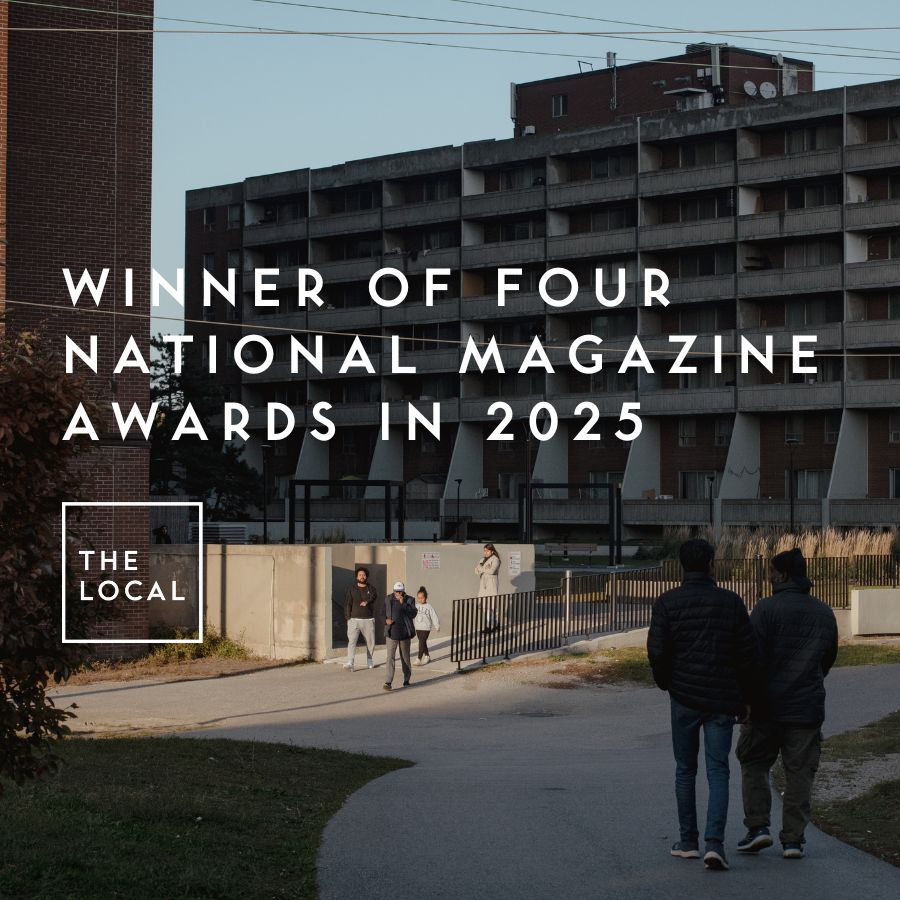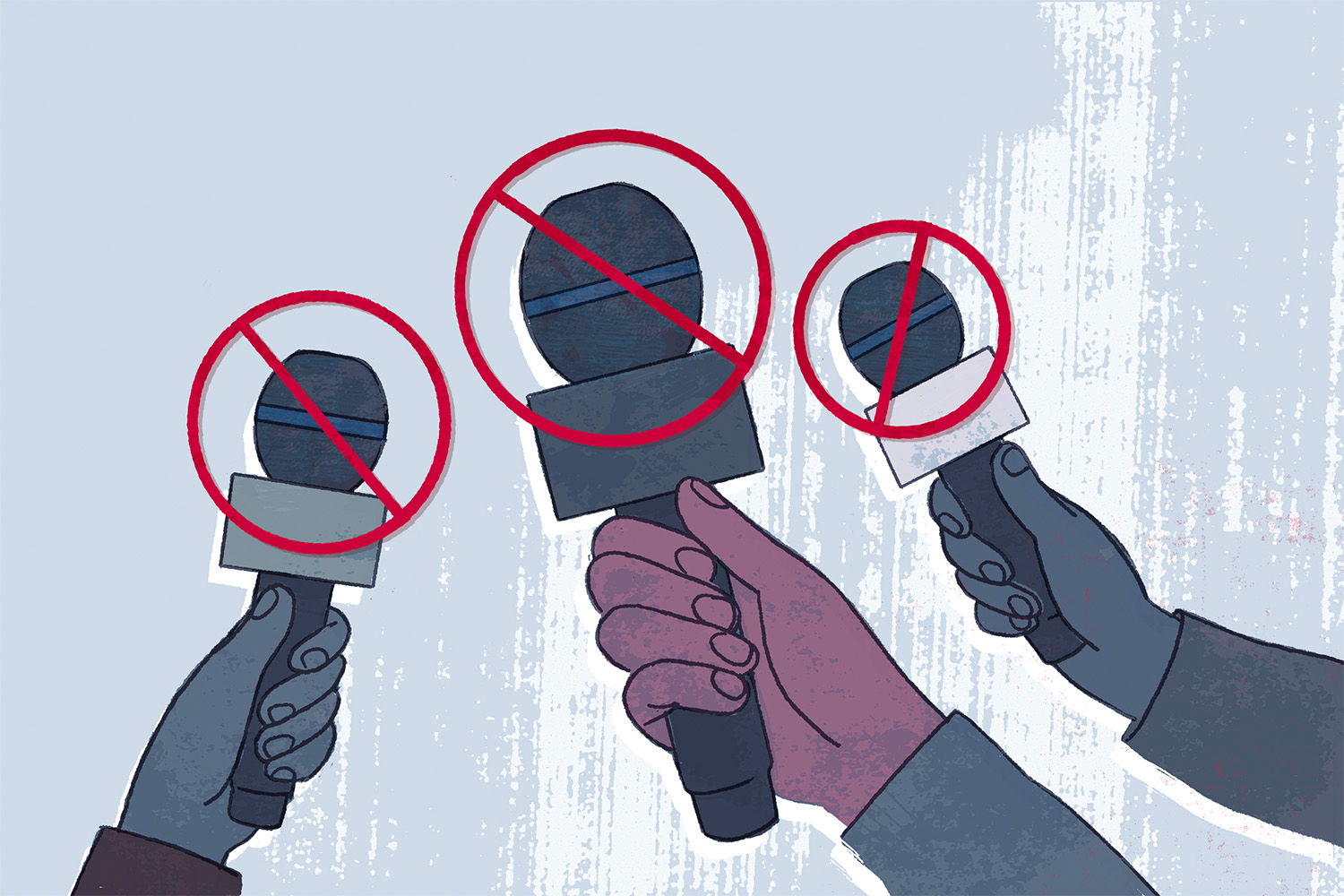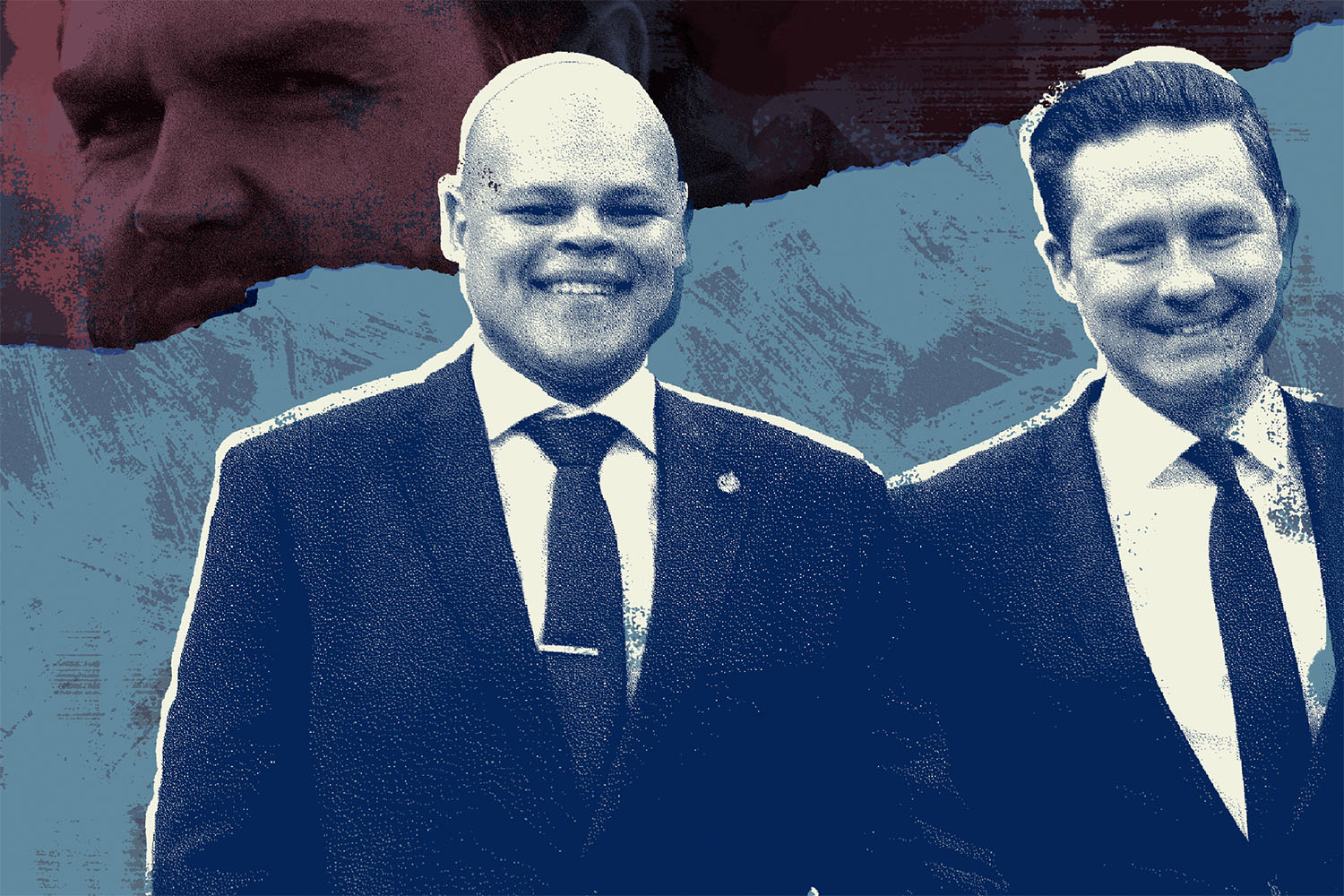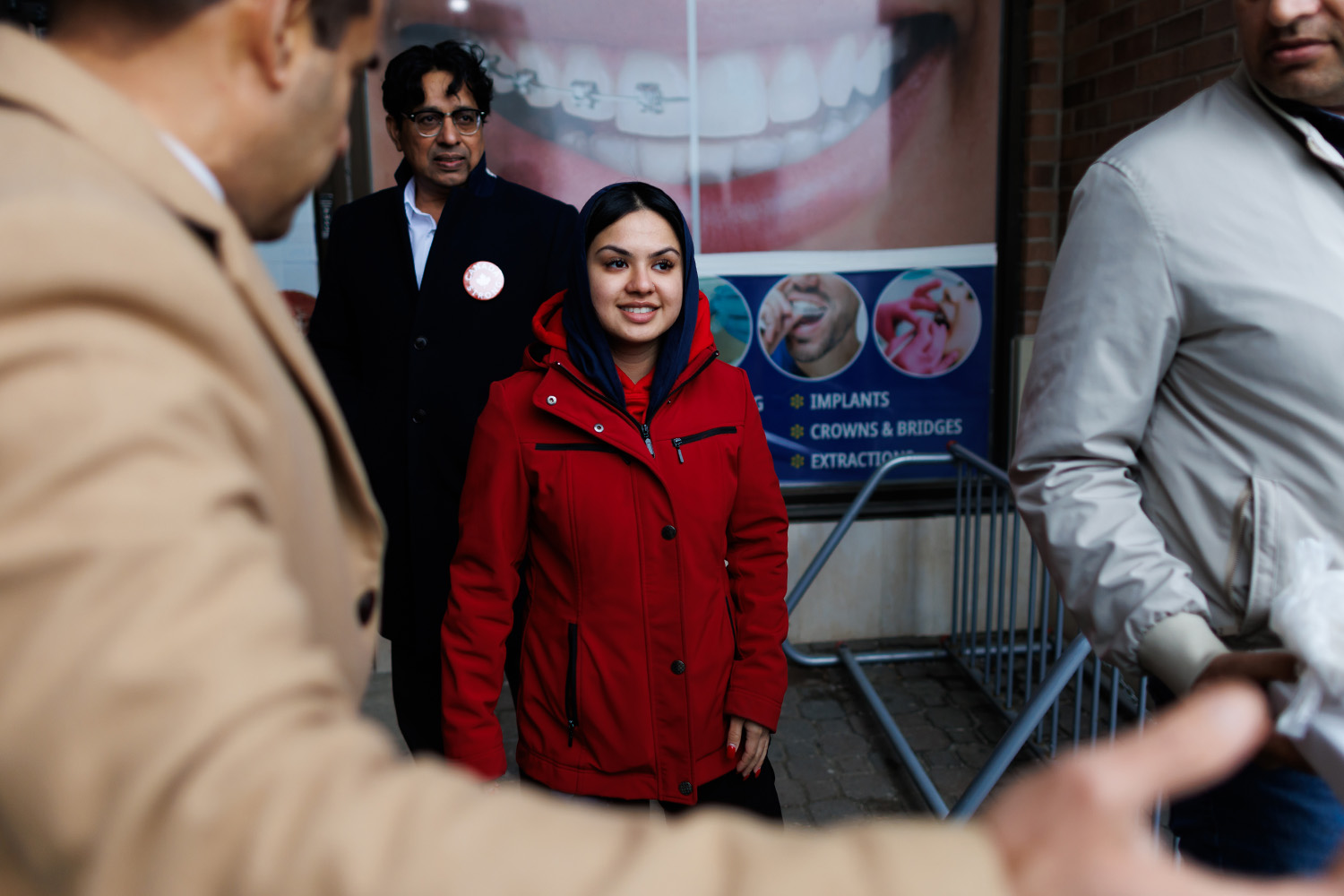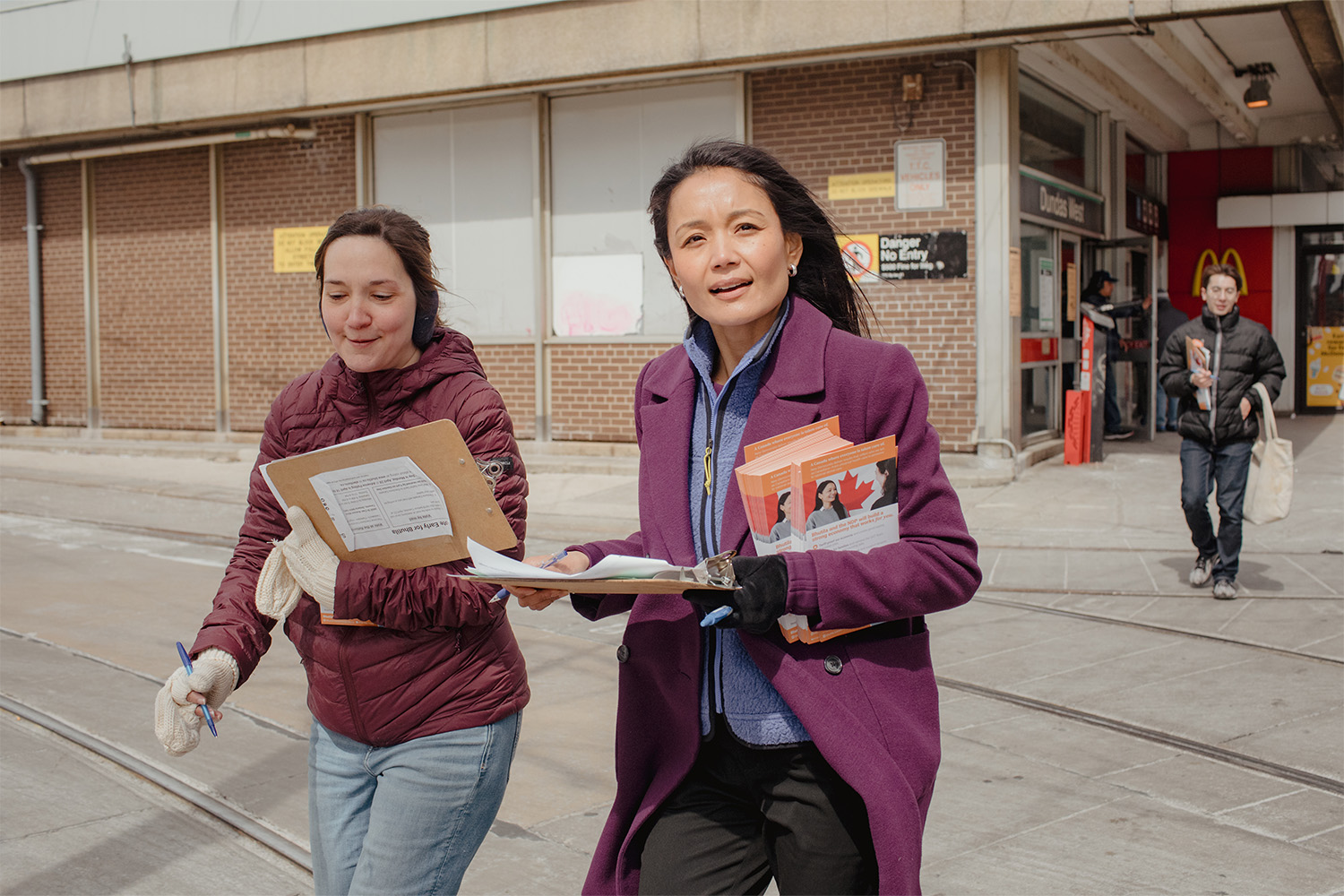
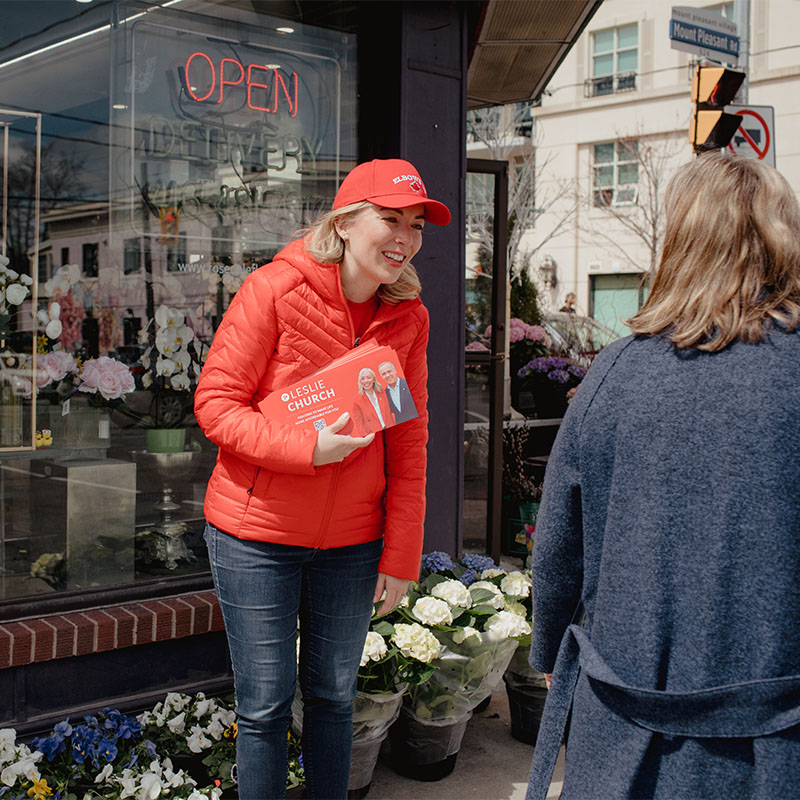
This April marks the second time in little under a year that Toronto–St. Paul’s is weighing its options for federal representation. The riding, encompassing a vast swath of midtown Toronto from Forest Hill to Davisville Village, had been a Liberal stronghold for decades before MP Carolyn Bennett stepped down in early 2024 to become Canada’s ambassador to Denmark. This triggered a by-election that was widely considered a referendum on the leadership of Justin Trudeau. For the first time in 30 years, Toronto–St. Paul’s went blue. Conservative candidate Don Stewart beat out Liberal candidate Leslie Church by roughly 600 votes, making Toronto–St. Paul’s the first Conservative riding in Toronto’s core, and spelling the beginning of the end of the Trudeau regime.
Today, of course, the constituents of St. Paul’s face a vastly different political landscape. After the by-election loss, an attempted caucus revolt, and the resignation of key cabinet members, Trudeau is no longer Prime Minister nor the head of the Liberal Party of Canada. That post has been assumed by Mark Carney. Then there’s the looming presence of Donald Trump, whose threats to Canadian sovereignty are, for many, the most pressing issue on the ballot.
Despite these differences, however, some things remain unchanged. Leslie Church is back running for the Liberals, and Don Stewart has returned to defend the seat he won for the Conservatives last year. Only the NDP, which garnered 10 percent of the vote last time around, has swapped out candidates, exchanging Amrit Parhar for Bruce Levy, a long-time diplomat who served most recently as High Commissioner to Sri Lanka.
It is easy to paint the entire community of Toronto–St. Paul’s as a universally wealthy monolith. After all, the riding does encompass the entirety of Forest Hill, a hilly enclave of multi-million dollar homes where some of the country’s richest families reside, including the Rogers and the Westons. However, as Pastor Jenni King Feheley of the St. Michael’s and All Angels Church on St. Clair West notes, these are not the only people in her community, and not the only voters.
“People can easily turn their blinkers on and say, ‘Oh look, this house went for $1.3 million, $1.5 million, things are obviously OK here,” she says. “But there’s so much more to this neighbourhood. I deal with people continually who are facing eviction, who can’t afford rent or food. That’s who’s having a knock at my door.”
I meet Leslie Church at Mary Be Kitchen, a café on St. Clair Avenue West, minutes away from her campaign office. A long-time stalwart of the Liberal party, she has served as chief of staff for Maryam Monsef, Anita Anand, and Chrystia Freeland. She gives me 15 minutes between door-knocking, rapidly running down the list of issues she sees as top-of-mind for the constituents of Toronto–St. Paul’s.
First, there’s Donald Trump’s whiplash of tariffs, which she thought she would be answering a lot of questions about on the campaign trail.
“But actually, people see that Trump is going after more than these tariffs,” she says. “They’re worried about their jobs and their livelihoods, but also about Canada: our culture, our land, our water, our resources. That’s really made them look closely at the leadership the major parties are offering.”
This brings her to the other major change since her by-election loss last year. Mark Carney has brought a “change in tone and leadership” to the current race, she says, calling him “the adult in the room.”
“A lot of Canadians feel betrayed by our closest neighbour and ally,” she says. “People like the fact that [Carney] is asking for respect from the United States.”
The other major issue that dogged last year’s by-election was the rise of antisemitism. Forest Hill has the fifth-largest Jewish community in Canada. Since the start of the Israel-Hamas war, Toronto saw hundreds of protests against Israel’s military offensive in Gaza, which has killed more than 50,000 Palestinians according to the Gaza Health Ministry. With the rise in tensions around the war came a slew of frightening incidents. In Cedarvale Park, swastikas were spray-painted on posters of Israeli hostages still held by Hamas in Gaza. A local Starbucks was graffitied. In Thornhill, a Jewish school was shot at multiple times in the middle of the night.
In the days before the by-election, the Conservative party sent around a letter to households in the neighbourhood asking them to “send a message about [Trudeau’s] betrayal of the Jewish community” by voting Conservative.
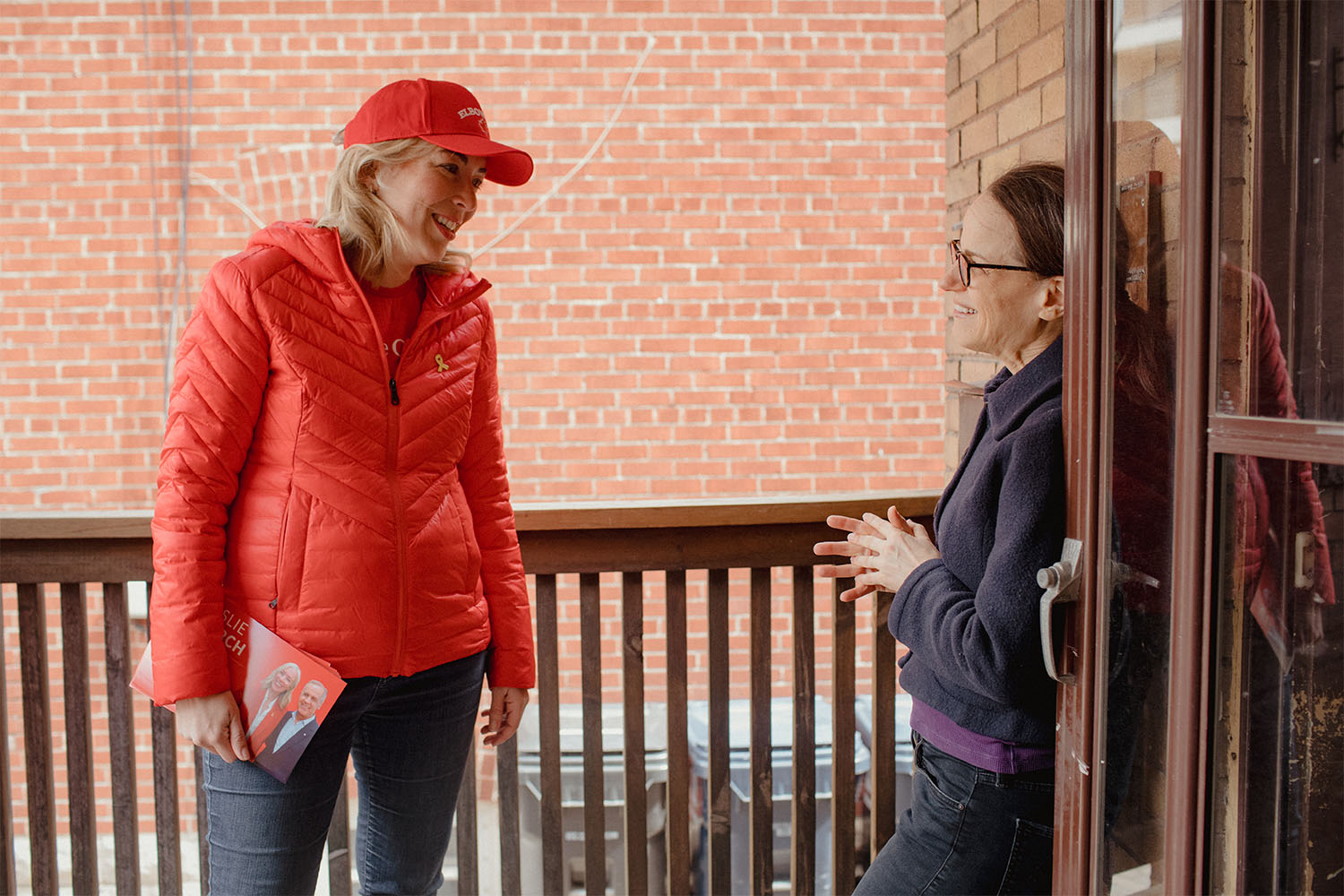
When asked about this, Church pushes forward a large leaflet dedicated to her plan to combat antisemitism. This includes adopting the handbook of the International Holocaust Remembrance Alliance (IHRA) to enforce “clear community safety protocols on schools and campuses”; increasing resources for police and hate crime prosecutors; and introducing federal legislation to create “safe access zones” around schools, places of worship, and community centers.
This is not an uncontroversial suggestion. Just last week, hundreds gathered outside City Hall to protest municipal-level legislation that would ban protests outside places of worship and faith-based schools. Critics argue that existing legislation already protects these institutions against criminal harassment and hate, and that such prohibitions would be an unreasonable restriction on the freedom to protest.
Like the Liberals, the Conservatives have also promised “tougher laws” to combat antisemitism, with Pierre Poilievre promising to “deport anyone who’s here on a visitor visa who carries out law-breaking”—echoing the recent deportations of pro-Palestinian student protestors in the United States.
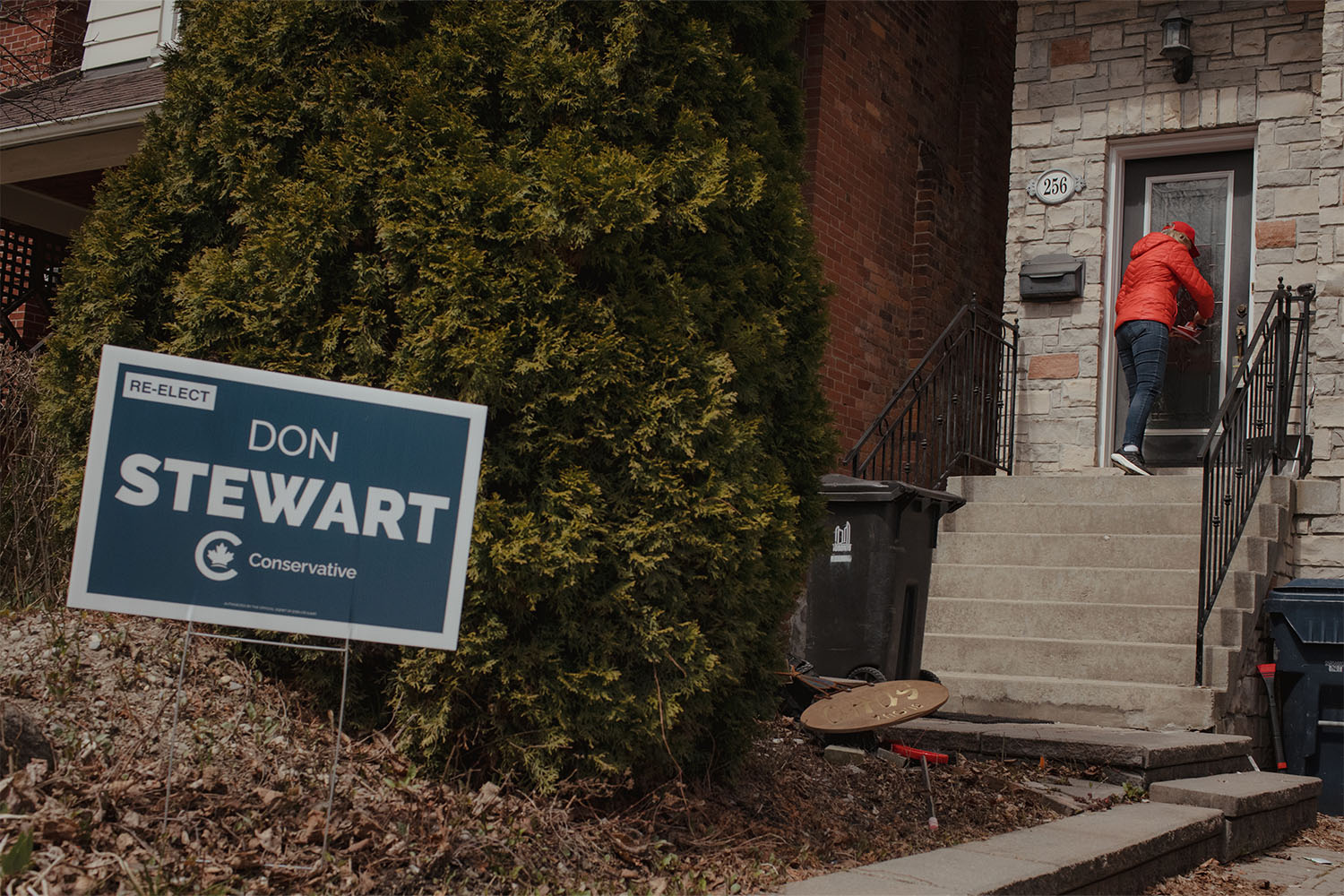
What the Conservatives plan to do to address antisemitism (or any other issue of note) in Toronto–St. Paul’s specifically remains unclear. Conservative candidate Don Stewart’s campaign refused multiple requests to speak with The Local for this story, and has been denying all other media as well. This radio silence extends to his constituents: he has declined to participate in the two local all-candidates events in the riding, the lone holdout among the major parties.
The parallel and often-conflicting problems of antisemitism and of protecting free expression around criticism of Israel’s military actions in Gaza are painful inflection points in Toronto–St. Paul’s, spurring deep discomfort. Of the more-than-a-dozen people I spoke to for this story, the vast majority refused to go on the record about either, fearing being misconstrued or piled-on after the fact.
When asked about the ongoing humanitarian crisis in Gaza and Israel’s recently renewed military offensive (which do not appear on her campaign materials), Church quickly clarifies that she would advocate for a renewed ceasefire and, in the long term, for a two-state solution that respects both Palestinian and Israeli self-determination.
“I’m open to advice on how we get there,” she says. “But I don’t think we’re necessarily going to solve that on the streets of St. Paul’s.”
I meet Bruce Levy, the NDP candidate for Toronto–St. Paul’s, a short streetcar ride west from the Liberal and Conservative campaign offices on Yonge Street. We sat down at Emma’s Country Kitchen, on St. Clair Avenue West, for a sprawling hour-long conversation over coffee and apple fritters.
Levy, a former diplomat with a decades-long career in the Canadian foreign service, describes his campaign as a “Hail Mary pass.” Instead of a traditional campaign mailer with a photo and a list of issues, Levy’s campaign material is an argument against strategic voting, which he sees as the main hurdle against his chances in the riding.
Federal Election 2025
For in-depth election coverage from across the GTA, sign up for our free newsletter
"*" indicates required fields
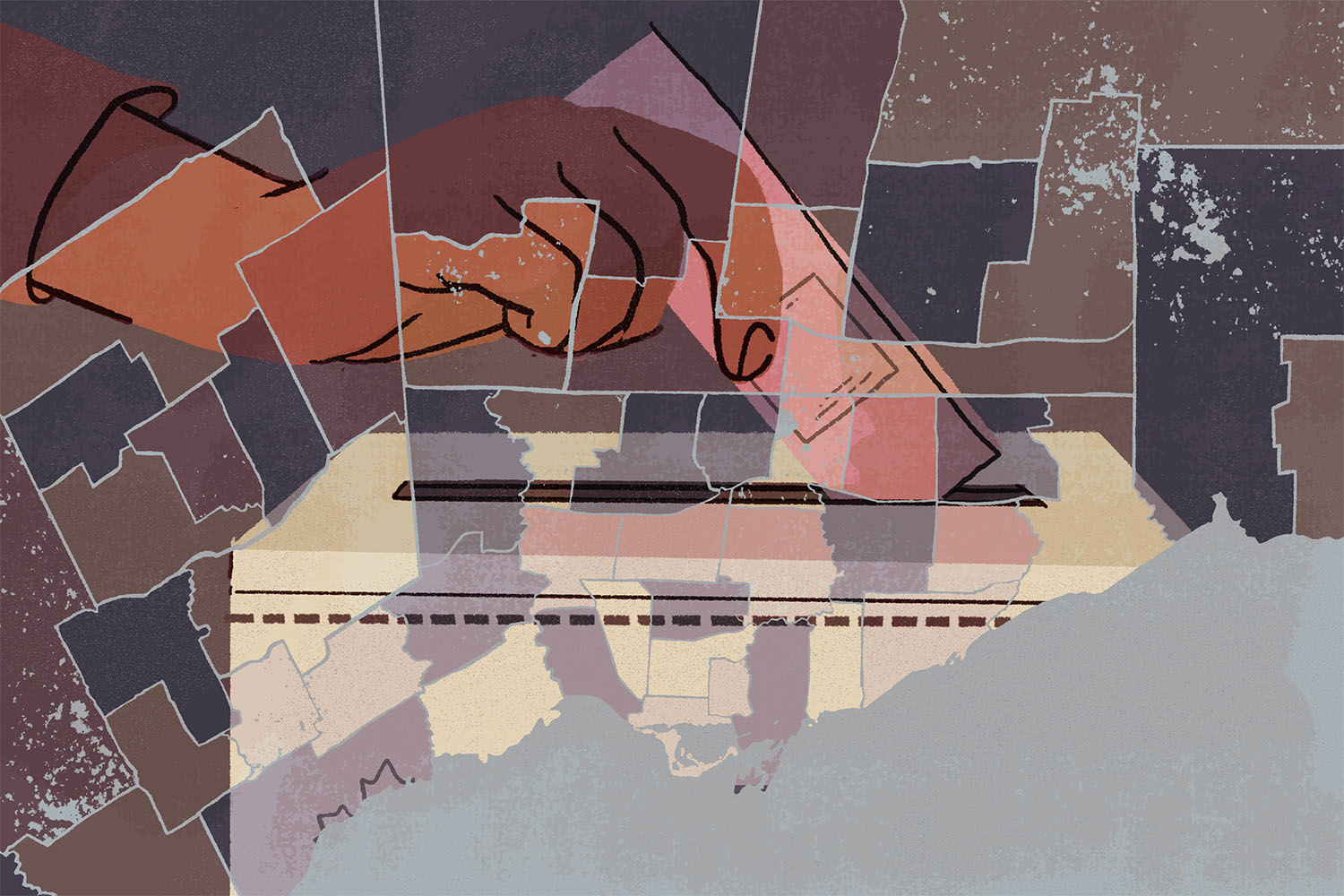
With Trump in office, “my argument is: why wouldn’t you want a strong leftist opposition to what this conservative bunch will do, which is not promote our values,” he says.
His interest, he says, is in maintaining a strong leftist presence in Parliament that will continue to advocate for Canada’s social programs.
“I know what the polls say,” he says. “But I tell people: anything is possible in an election. And I believe that Canada is much better off having a strong NDP presence in Parliament.”
Pastor Feheley at St. Michael’s and All Angels Church would also like to see renewed investment in social programs that protect the most vulnerable members in her community. Since the onset of the pandemic, she notes, the church has had to quadruple the size of its food bank, taking out walls in the basement to make space. They are currently applying for a grant to renovate their kitchen that hasn’t seen an update since the 1980s—which would help support a busy lunch program the church runs on Sundays for their underhoused neighbours.
On Monday, April 21, (a day before the publication of this article) the church hosted the second all-candidates event in the community, to bring people face to face with their candidates. Feheley says they were careful to bill this event as a “conversation” rather than a “debate.”
“The reason for that is very specific,” she says. “We don’t need to hear somebody tell us how terrible somebody else is. We’ve all heard that. We want to know what you can do for this community, and this country.”
The Local’s Federal Election 2025 coverage is supported in part by our readers and by the Covering Canada: Election 2025 Fund.
